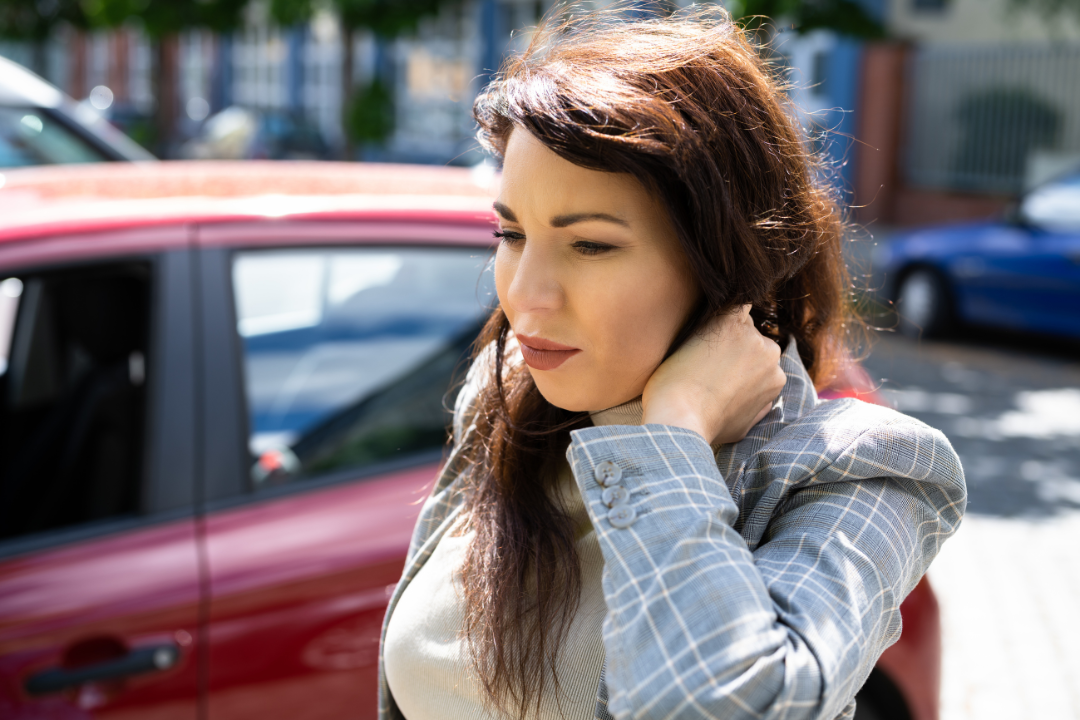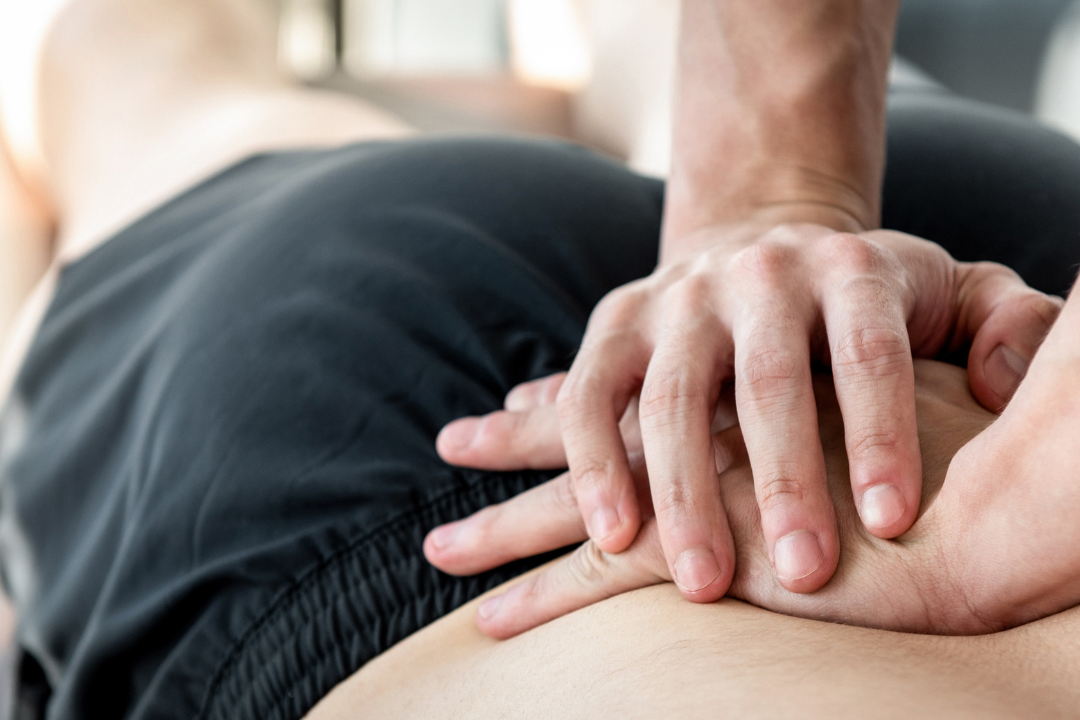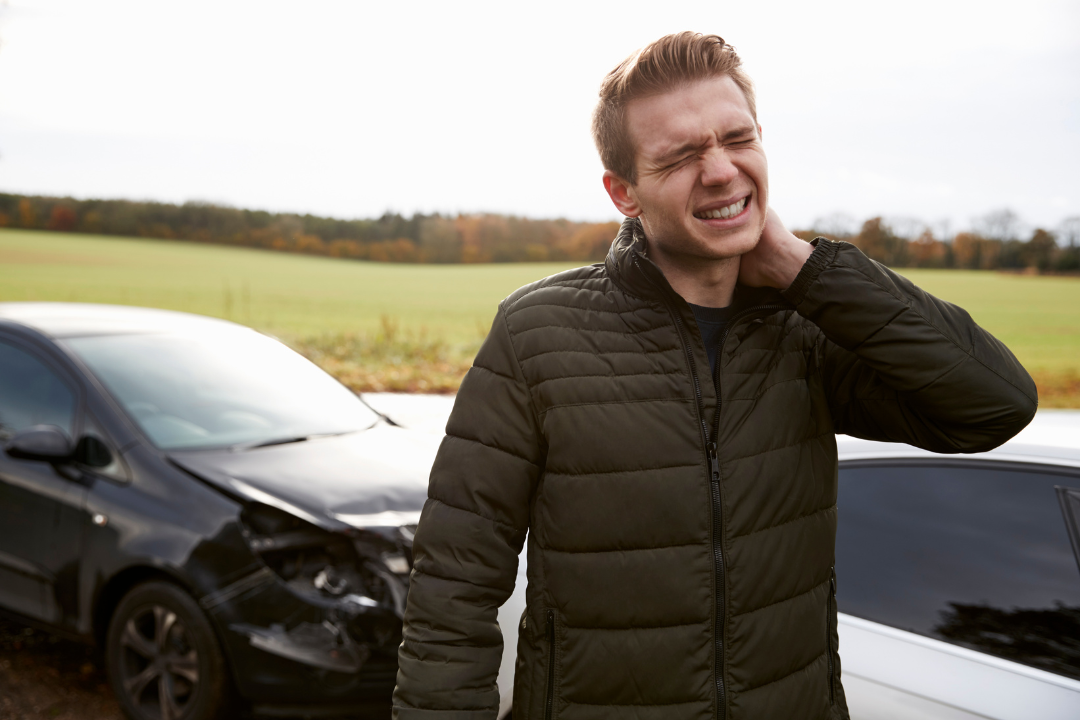Car accidents can be a terrifying experiences, leaving both immediate and lasting impacts on your body. While some injuries are apparent right away, others may take time to manifest. This delay in symptoms can make it difficult to know when to seek medical attention and when to simply monitor your condition. Understanding when pain after a car accident is a cause for concern is crucial for ensuring your well-being.
Understanding Car Accident Injuries
Even minor car accidents can lead to a range of injuries. When your body is subjected to the sudden force of a collision, it can react in ways that aren’t always immediately obvious.
Common Injuries in Car Accidents
Car accidents can cause a variety of injuries, from minor cuts and bruises to more serious conditions. Some of the most common injuries include:
-
Whiplash: A neck injury caused by the rapid back-and-forth movement of the head, often from rear-end collisions.
-
Concussions: Mild traumatic brain injuries that can occur from a blow to the head or violent shaking.
-
Soft Tissue Injuries: Strains, sprains, and tears in muscles, ligaments, and tendons.
-
Fractures and Broken Bones: Common in high-impact crashes.
-
Internal Injuries: Damage to organs, internal bleeding, or ruptured blood vessels, which can be life-threatening.
Why Some Injuries Don’t Show Symptoms Immediately
Right after a car accident, your body releases adrenaline, which can temporarily mask pain and injuries. This natural response might delay symptoms for hours, days, or even weeks. Additionally, injuries like soft tissue damage or spinal issues may not become painful until inflammation or muscle spasms develop.
Immediate Steps After a Car Accident
Knowing what to do right after a car accident can make a big difference in how you manage pain and recovery. Taking the right steps early on helps identify any serious injuries and sets the stage for effective treatment.
What to Do Immediately After an Accident
Your first priority after an accident should be safety. If possible, move your vehicle to a safe spot and check yourself and others for injuries. Even if you feel fine, it’s essential to call emergency services. A prompt medical evaluation can uncover injuries that aren’t immediately obvious.
The Importance of Getting Checked Out
Even if you feel okay after an accident, getting checked out by a doctor is crucial. Medical professionals can detect injuries that might not show symptoms right away, like internal bleeding or concussions. Early diagnosis can prevent complications and ensure you get the treatment you need before conditions worsen.
Why You Shouldn’t Ignore Minor Pain
Pain that seems minor at first could be a sign of a more serious underlying issue. For example, what feels like a slight neck strain could actually be early signs of whiplash, which can lead to chronic pain if left untreated. Always take even mild pain seriously after a car accident and seek medical advice to rule out more serious conditions.
Recognizing Pain Post-Accident
Understanding the types of pain that can occur after a car accident helps you recognize when to be concerned. Different kinds of pain can indicate various injuries, some of which may require immediate medical attention.
Identifying Whiplash and Neck Pain
Whiplash is a common injury in car accidents, especially in rear-end collisions. This happens when the head is abruptly jerked backward and then forward, causing strain on the neck muscles and ligaments. Symptoms of whiplash may include neck pain, stiffness, headaches, and dizziness. If you experience these symptoms, it’s important to seek medical care to prevent long-term issues.
Understanding Back Pain
Back pain following a car accident can stem from a range of injuries such as spinal cord damage, herniated discs, or muscle strains. While mild back pain might simply be a strain, severe or persistent pain could indicate a more serious issue like a spinal injury. If back pain is accompanied by numbness, tingling, or weakness in your legs, this could be a sign of nerve damage, and you should seek immediate medical attention.
Headaches After a Car Accident
Headaches are another common complaint after a car accident and can be caused by factors like whiplash, concussion, or even stress. However, if a headache is severe, persistent, or accompanied by other symptoms like nausea or confusion, it could be a sign of a traumatic brain injury. In these cases, getting immediate medical evaluation is critical.
Chest Pain and Breathing Difficulties
Chest pain after an accident should never be ignored. It can indicate bruising to the ribs, a punctured lung, or even a heart attack. If you experience chest pain, especially if it worsens with deep breaths or is accompanied by shortness of breath, seek emergency medical care.
Pain in Limbs and Extremities
Pain in your arms, legs, hands, or feet could result from fractures, dislocations, or soft tissue injuries like sprains. If you experience numbness, tingling, or loss of strength in any limb, this could indicate nerve damage or a serious injury, requiring prompt medical attention.

Delayed Pain: When to Be Concerned
Not all pain from a car accident shows up right away. Some injuries, especially soft tissue injuries, might not cause pain until days or weeks later. Understanding when delayed pain is a red flag can help you determine when to seek further medical care.
Why Pain Might Appear Later
Delayed pain can happen for several reasons. Sometimes, the initial shock of the accident masks the pain, and as your body calms down, the full extent of your injuries becomes apparent. In other cases, inflammation and muscle spasms develop over time, causing pain to emerge later. Your body might also compensate for an injury in one area by straining another, leading to pain days after the accident.
When Delayed Pain Is Serious
If you start experiencing new or worsening pain days or weeks after a car accident, take it seriously. Pain that gets worse or is accompanied by symptoms like dizziness, nausea, or difficulty breathing could indicate a serious condition that needs immediate medical attention.

When Should You Worry About Pain After a Car Accident?
It’s natural to feel some level of pain after an accident, but how do you know when it’s something more serious? Pay attention to the severity, duration, and nature of the pain. If pain persists for more than a few days, worsens over time, or is accompanied by other symptoms like dizziness, numbness, or difficulty breathing, it’s time to seek medical attention. Delaying treatment can result in long-term damage that might have been preventable.
Types of Pain to Be Concerned About
Understanding the different types of pain after a car crash is crucial. There are generally two categories of concern: persistent pain and delayed onset pain. Persistent pain occurs immediately after the accident and doesn’t go away, often indicating a more severe injury. Delayed onset pain might not appear until days or even weeks later but can be just as serious.
Signs That Require Immediate Attention
Certain symptoms following a car wreck should prompt immediate medical evaluation. Ignoring these signs can lead to serious complications or chronic conditions.
Severe and Persistent Headaches
While headaches are common after an accident, severe or persistent headaches could indicate a concussion, traumatic brain injury, or even a blood clot. If you experience a headache that doesn’t improve with rest or medication, or if it worsens over time, seek medical attention right away.
Dizziness, Confusion, and Memory Loss
These symptoms can be signs of a concussion or more serious brain injury. If you experience dizziness, confusion, memory loss, or difficulty concentrating after a car crash, it’s crucial to get evaluated by a doctor. These symptoms can sometimes indicate a life-threatening condition like a brain bleed.
Severe Neck and Back Pain
Severe neck or back pain following an accident may indicate a serious spinal injury or damage to the vertebrae. This pain can sometimes be associated with numbness, tingling, or weakness in the arms or legs, suggesting nerve damage. Immediate medical intervention is essential to prevent long-term damage.
Numbness or Tingling in Limbs
Numbness or tingling in the arms, legs, hands, or feet can be a sign of nerve compression or damage, possibly due to a herniated disc or spinal injury. These symptoms should not be ignored, as they could lead to permanent nerve damage if left untreated.
Persistent Abdominal Pain
Persistent abdominal pain after a car wreck could be a sign of internal injuries, such as organ damage or internal bleeding. Symptoms like swelling, bruising, or lightheadedness along with abdominal pain are particularly concerning and warrant immediate medical evaluation.
Diagnosing Post-Accident Pain
Proper diagnosis of injuries sustained in a car accident is key to effective treatment and recovery. Various diagnostic tools and specialists can help identify the source of your pain.
The Role of Imaging in Diagnosing Injuries
Imaging tests like X-rays, CT scans, and MRIs are essential in diagnosing injuries after a car crash. These tests can reveal fractures, internal injuries, and other conditions that might not be apparent through a physical examination alone. Imaging is particularly important if you experience pain that doesn’t improve with time or rest.
Why You Might Need to See a Specialist
Depending on the nature of your injury, your primary care physician might refer you to a specialist. For example, an orthopedic surgeon might be needed for bone fractures, while a neurologist would be necessary for head or spine injuries. Specialists have the expertise to diagnose and treat complex conditions that might arise from a car accident.

Psychological Impact of Accident-Related Pain
Pain doesn’t just affect your body; it can also take a toll on your mental health. The stress of dealing with persistent pain can lead to anxiety, depression, and even post-traumatic stress disorder (PTSD). It’s important to recognize these psychological effects and seek appropriate help. Support from mental health professionals, combined with pain management strategies, can be crucial in your recovery.
How Chiropractic Care Can Help
Chiropractic care offers a non-invasive approach to managing pain and restoring mobility after a car accident. Chiropractors can address issues related to the spine, muscles, and joints, helping patients recover without the need for surgery or medication.

Chiropractic Care for Whiplash and Neck Injuries
Whiplash and other neck injuries respond well to chiropractic care. Chiropractors employ spinal adjustments, massage therapy, and various techniques to alleviate pain, diminish inflammation, and enhance mobility.Regular chiropractic visits can help prevent chronic pain from developing.
Managing Back Pain with Chiropractic Care
Back pain is one of the most common complaints after a car accident. Treatment options include chiropractic adjustments, physical therapy, and, in some cases, pain management techniques like injections. Maintaining an active lifestyle, as recommended by your healthcare provider, can also help manage back pain.
Pain Management Techniques and Medication
In some cases, medication might be necessary to manage pain after a car accident. Over-the-counter pain relievers like ibuprofen can help with mild pain, while prescription medications may be needed for more severe pain. Pain management specialists can also offer treatments like nerve blocks or steroid injections to provide relief.
The Importance of Rest and Rehabilitation
Rest is a critical component of recovery after a car accident. Giving your body time to heal helps prevent further injury and reduces the risk of developing chronic pain. However, too much rest can lead to stiffness and loss of mobility, so it’s important to follow a balanced rehabilitation plan that includes both rest and activity.
Legal Considerations Related to Pain
Pain and injuries from a car accident can have legal implications, especially when it comes to insurance claims and personal injury lawsuits. Proper documentation and timely medical care are critical in these situations.
Documenting Injuries for Legal Claims
If you plan to file an insurance claim or take legal action after a car accident, documenting your injuries is essential. Keep detailed records of all medical evaluations, treatments, and any symptoms you experience. This documentation will be crucial in proving the extent of your injuries and securing compensation.
How Delayed Pain Affects Insurance Claims
Delayed onset of pain can complicate insurance claims, as it may be more challenging to prove that your injuries were directly caused by the accident. This is another reason why early and consistent medical evaluation is important. Your medical records can demonstrate that your injuries, even if they appeared later, are related to the accident.
The Importance of Medical Records
Medical records play a key role in both legal and insurance claims after a car accident. They provide evidence of your injuries and the treatments you’ve received, which can help establish the legitimacy of your claim. Be sure to keep copies of all medical reports, bills, and related documents.
FAQs About Pain After a Car Accident
How soon should I see a doctor after an accident? It’s best to see a doctor as soon as possible after an accident, even if you don’t feel injured. Early medical evaluation can identify injuries that may not show symptoms immediately.
What if my pain doesn’t start until days later? Pain that starts days or weeks after an accident is not uncommon. If you experience delayed pain, it’s important to seek medical evaluation to rule out any serious conditions.
How long should pain last after a car crash? The duration of pain varies depending on the severity of the injury. Mild injuries may heal within a few weeks, while more serious injuries could take months. Persistent pain should be evaluated by a healthcare professional.
Can I develop chronic pain from a car wreck? Yes, untreated injuries from a car accident can lead to chronic pain. This is why it’s essential to follow through with treatment and follow-up care to prevent long-term issues.
Should I visit a chiropractor after an accident? Visiting a chiropractor can be highly beneficial, especially for musculoskeletal injuries like whiplash or back pain. Chiropractic care can help reduce pain and improve recovery.
Knowing When to Worry About Pain
Recognizing when to worry about pain after a car accident is crucial for your health and recovery. Immediate medical attention is necessary for any severe or persistent pain, and delayed pain should not be ignored. By taking proactive steps and seeking the appropriate care, you can address any injuries early and prevent long-term complications.
Share this post with others who might benefit from this information. Prioritize your health and seek the necessary support to recover fully from a car accident. If you need personalized care, consider consulting experts like Dr. Jason Addison for comprehensive and compassionate treatment by filling out the form below.

